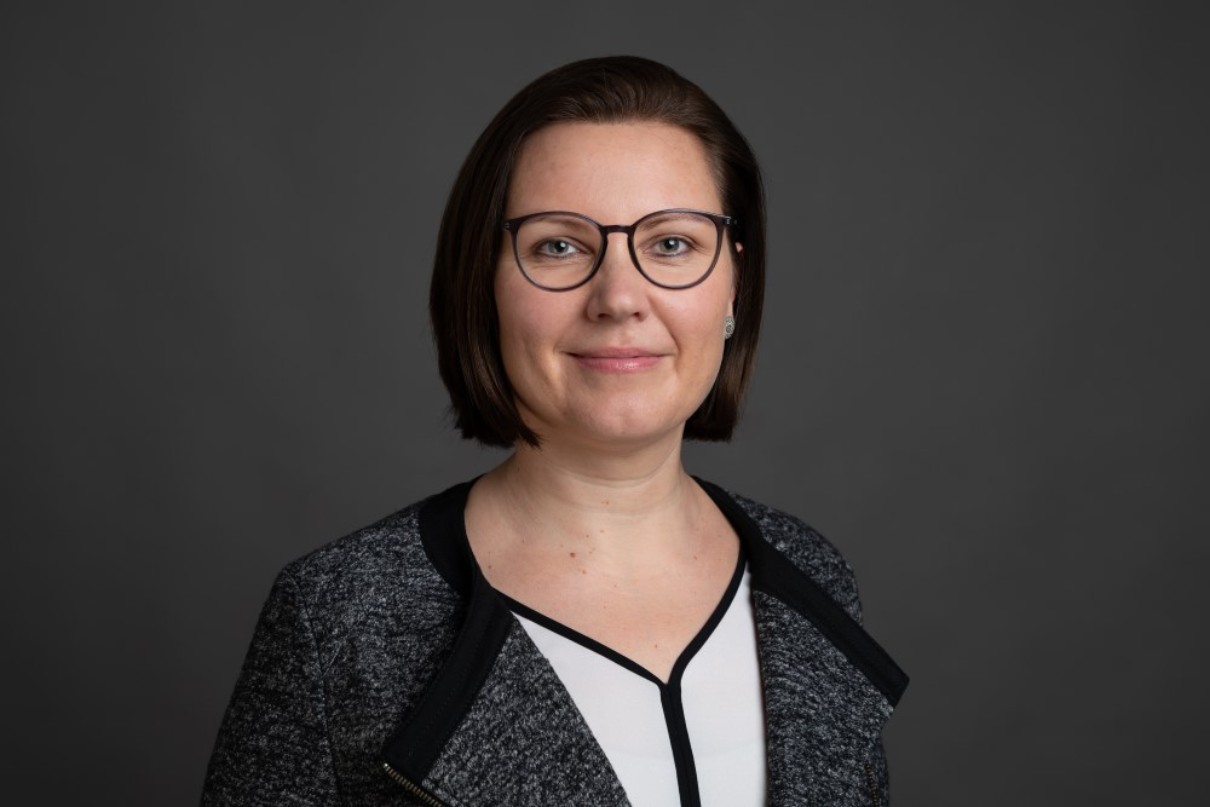Page content
5 questions for Dr. Kerstin Wendt
Tell us about how your career in the mobility sector began. What motivated you to join Women in Mobility (WiM)?
After studying Informatics in Passau and Barcelona, a job came up with IVU Traffic Technologies AG by coincidence. It was there that I discovered my passion for the mobility sector, especially public transport. I have been working in this sector for twelve years now and wouldn’t want to have missed a day. I have never owned a car in my life. You really don’t need to in a city, not even with kids. I love working on things I can use, touch and try out for myself every day. In the course of my career I have rolled out complex systems for transport companies, negotiated fares for VBB with representatives of the German federal states and transport companies, and am currently dealing with passenger safety, an important issue. WiM was the logical next step for me at a very early stage. In Germany only around 20 per cent of employees in the mobility sector are currently women. However, we know from various surveys that women and other user groups including children, people with reduced mobility and the elderly have transport needs different to those of the average male commuter. That is why it is important for us to offer our input and be at the table where decisions are made. That has been the main emphasis of my work over eight years at WiM. Currently it is on managing the Berlin hub with other brilliant and determined women from this sector.
What role do women play in the mobility sector, and how can the Women in Mobility network help promote diversity and equality in this field?
Women are over-represented as users of public transport and under-represented as decision-makers in this sector. There is an imbalance here. There is ample evidence to show that different user groups have different transport needs. That is why at WiM we support inclusive mobility for everyone. It is not about making the system safer and more convenient only for women, but about improvements for everyone. That aspect is often neglected in discussions. I recently represented GIZ on a trip to Mexico and was able to present our network and discuss the power of networking and various perspectives with fascinating people. In Chile for example, when bus licences are granted, it is standard practice to set a quota for female drivers. Against the backdrop of the many sexual assaults on public transport in Latin America, that is one of many measures for achieving greater equality.
What challenges and opportunities do you see for women working in the mobility sector, particularly regarding senior positions and developing careers?
I see a wide range of challenges. They include dealing with the skills shortage, an empathetic approach to management, and exercising a responsibility towards society. Women can offer new perspectives in all areas here and introduce new ideas to an otherwise conventional approach. It is important in my view not to confront each other but to work together. My upbringing was in East Germany, and for me it was always clear that I had to offer my opinion and be heard. I also see myself as a role model, showing women the opportunities they can take. Also, it is important to make this kind of role model visible within a company and beyond, in a network such as WiM.
How can companies and organisations actively help create an inclusive and diverse work environment in the mobility sector?
General measures such as offering flexible and part-time hours, job sharing, including for senior management, as well as clear job opportunities and career development are required here. Actively approaching women here would be welcome too, if they do not take the initiative themselves. Sometimes we need a little support and external help, but that also lets us excel. Our experience with mentoring, within companies and from outside, has been positive too. Particularly in places such as workshops, transport companies or production plants, toilets for women should be taken for granted, including provision by the employer of sanitary articles for monthly hygiene, as well as workwear suitable for female colleagues.
Could you give us a preview of the upcoming panel that Women in Mobility will be holding on the BUS2BUS Deep Dive Stage on 25 April? What topics will you discuss and who are the experts taking part?
This is the first time Women in Mobility is at BUS2BUS. The network gathers experts who actively shape modern and sustainable mobility as part of their job. At the panel and subsequent discussion the focus will be on sustainability and specific usage concepts. We will be talking with experts who are able to give EV batteries a new lease of life, thereby driving the circular economy. We also want to talk about alternative uses for fuel tanks. What happens to vehicles when they are taken out of service? With all the hype surrounding new technology, these are topics we must not lose sight of, as otherwise they will be back with a vengeance in the near future.



